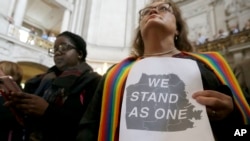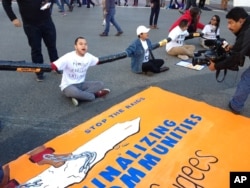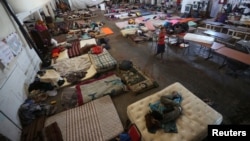Stephanie
Diamond Member
- Jul 11, 2004
- 70,230
- 10,865
- 2,040

By JENNIFER TALHELM
The Associated Press
Thursday, July 6, 2006; 6:32 PM
WASHINGTON -- Cities and states that aid illegal immigrants without reporting them to the authorities risk losing millions of dollars in homeland security and other federal money under two spending bills approved last month by the House.
The bills, which fund the departments of Homeland Security, Commerce, State and Justice, were amended to refuse federal money to any city or state with policies that prohibit local government officials from alerting federal authorities about possible immigration law violators.
House lawmakers say several cities and states allow criminal suspects to escape deportation because local officials, including police officers, turn a blind eye to the immigration law passed in 1996.
It is unclear what will happen to the immigration provisions when the spending measures are considered in the Senate.
But the prospect outraged New York City Mayor Michael Bloomberg, who raised the issue during a Senate immigration hearing in Philadelphia this week, threatening "one heck of a battle" if Congress cuts off homeland security and justice dollars.
Bloomberg said New York City protects residents' confidentiality when they report a crime or seek medical care or education.
The city's policy complies with the 1996 law, he said. But he said some members of Congress have questioned it and asked for the Justice Department to review all state and local policies.
"We believe the review will validate our approach," Bloomberg told the Senate Committee. "But whatever the findings, let me be clear: The way to deal with this issue is not _ not _ by reducing the safety and security of our nation."
House supporters of the provisions said cities that prevent police officers from sharing information about illegal immigrants with the federal government put Americans at risk.
They shared a list of violent crimes committed by illegal immigrants in Houston, New York and other cities. Several involved gang members.
"No police officer should be barred from contacting federal immigration authorities about a criminal alien suspect," said Rep. Steve King, R-Iowa, who offered the amendment to the 2007 Homeland Security appropriations bill.
The Congressional Research Service reported earlier this year that the "sanctuary" policies of several cities are rooted in a 1980s religious movement in which churches helped thousands of Central American migrants fleeing civil war. The specific policies vary. Some prevent local governments from using resources to enforce a federal law.
Rep. Tom Tancredo, R-Colo., chairman of the Congressional Immigration Reform Caucus, said Congress intended the 1996 federal immigration law to counteract the sanctuary policies.
"Unfortunately, there was a law but there was no penalty," Tancredo said in an interview. "What this does is add some sort of penalty."
Bloomberg said the penalty would aid terrorists. "New York remains the country's top terror target, and if Congress passes this amendment, no one will cheer louder than al-Qaida," he said.
http://www.washingtonpost.com/wp-dyn/content/article/2006/07/06/AR2006070601324.html





